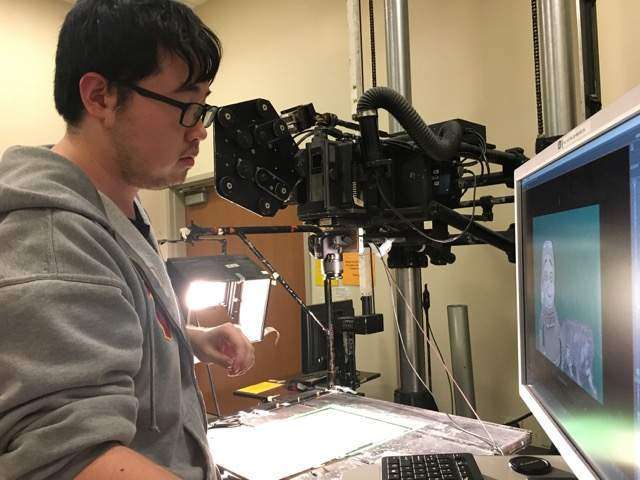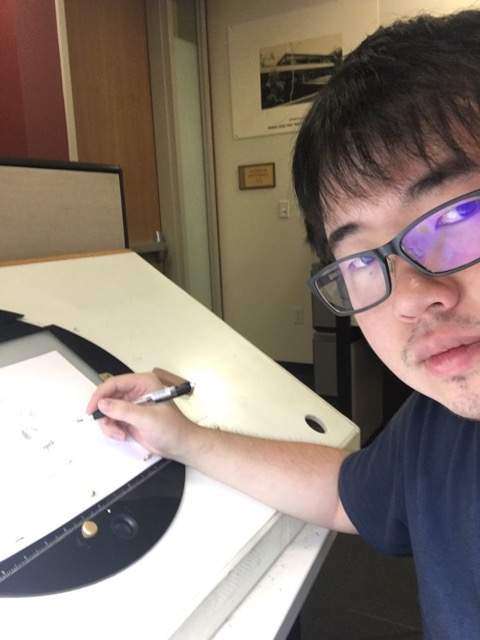
Story is always vital to a film but the visual style is often what makes an audience truly feel that “Yes, I believe this story.” Xiaobo “Daniel” Ma’s work with his collaborators at Retina Imageworks is one of the major factors in achieving this for the massively popular and successful film The Wandering Earth 2. This prequel to the original 2019 hit film has surpassed The Wandering Earth in the astonishing visuals it displays and perhaps even in accolades received.
This 2023 production garnered such recognitions as Best Film of the Year, Best Technology Film of the Year, and Most Popular Visual Effects at the China Movie & TV Night Awards, Film of the Year at the China Movie Channel Awards, and the Weibo Award for Film of the Year, among numerous others. As the film industries of China and Hollywood push each other to new heights, productions like this and the results they display leave the audience and the art form as the real winners.
Xiaobo declares, “Working in this industry is a constant reminder of how fortunate I am. Collaborating with talented individuals to create not just entertainment, but also expand our creativity is a true joy. It often feels like we’re being paid to have fun, and this enjoyment contributes to better results. Our creative process begins with imagination, where new ideas are born, laughed at, and improved upon collectively. Witnessing these sparks of ideas evolve into masterpieces is incredibly satisfying.”

In order to appreciate how essential Xiaobo’s work was to The Wandering Earth 2, one must understand that this prequel stars actor Jing Wu in the same role [Peiqiang Liu] as the first film but the storyline takes place many years prior to that of The Wandering Earth. While the performance of the actor is obviously vital, visual appearance is often the lynch pin to whether audiences will completely buy into a premise.
Using the most advanced deep fake technology, Xiaobo and his team de-aged Jing Wu’s appearance in a most astonishing way. Though the implementation of AI learning technology was implemented, this process also demanded human expertise to reach the optimal outcome. Xiaobo explains, “We were amazed by how much this can change the storytelling. A suitable look on a character makes the plot much more believable, and the emotion carried by an experienced actor can have an even bigger impact integrated with the right look in the film.
Our aim wasn’t to transform Jing Wu into an unconvincingly youthful figure but rather to strike a balance between youthfulness and the depth of his expressions. We achieved this equilibrium by imbuing his appearance with a sense of youth while retaining the nuanced facial expressions that convey his character’s richness.”

An important player in the performance was never be seen by audiences. To test out different scenarios and prepare, a digitized actor was created for the character Peiqiang Liu. This allowed Xiaobo and his team to anticipate problems and find solutions in advance. Using Epic Games Unreal Engine, Jing Wu’s scanned data was inputted into a blueprint machine called the “metahuman.”
This new process allowed a much smaller team to test out different situations for the lead actor with massively increased efficiency and outcomes. One of the most benevolent uses was in counteracting something known as “motion-blur.” As the animation lead, Xiaobo and his team created 3D versions of the actions sequences which counteracted the motion blur problem, allowing the final version of these scenes to be in the film as envisioned.
He remarks, “We worked on each shot, to ‘re-act’ out the scenes and re-create the performances. Not only did we use the controllers on our metahuman’s face, but also live motion capture, to literally act out the shot. It’s super fun to make faces in fight scenes where the character is showing very exaggerated facial expressions and see the digital character doing the same. It’s like looking into a mirror, while the mirror is showing a famous actor doing exactly what we are doing.”
The Wandering Earth was an unexpected hit which surprised the international film community in regards to the incredibly high quality of a Chinese production. This understandably focused immense attention and pressure on the creators of this sequel/prequel. The Wandering Earth 2 has the benefit of a much bigger budget and huge technological advances, such as those utilized by Xiaobo and his team.
While the original film announced the Chinese film industry as a global contender, this latest film established them unquestionably as a leader. What Xiaobo Daniel Ma and his collaborators exhibit in this film is that we are embarking on a journey into a new visual realm that will empower a whole new generation of filmmakers to manifest their visions with greater confidence. In terms of more immediate relevance, The Wandering Earth 2 seems to have achieved the goal of every franchise film in exceeding the expectations of fans and critics.
Writer: Louie Paglia